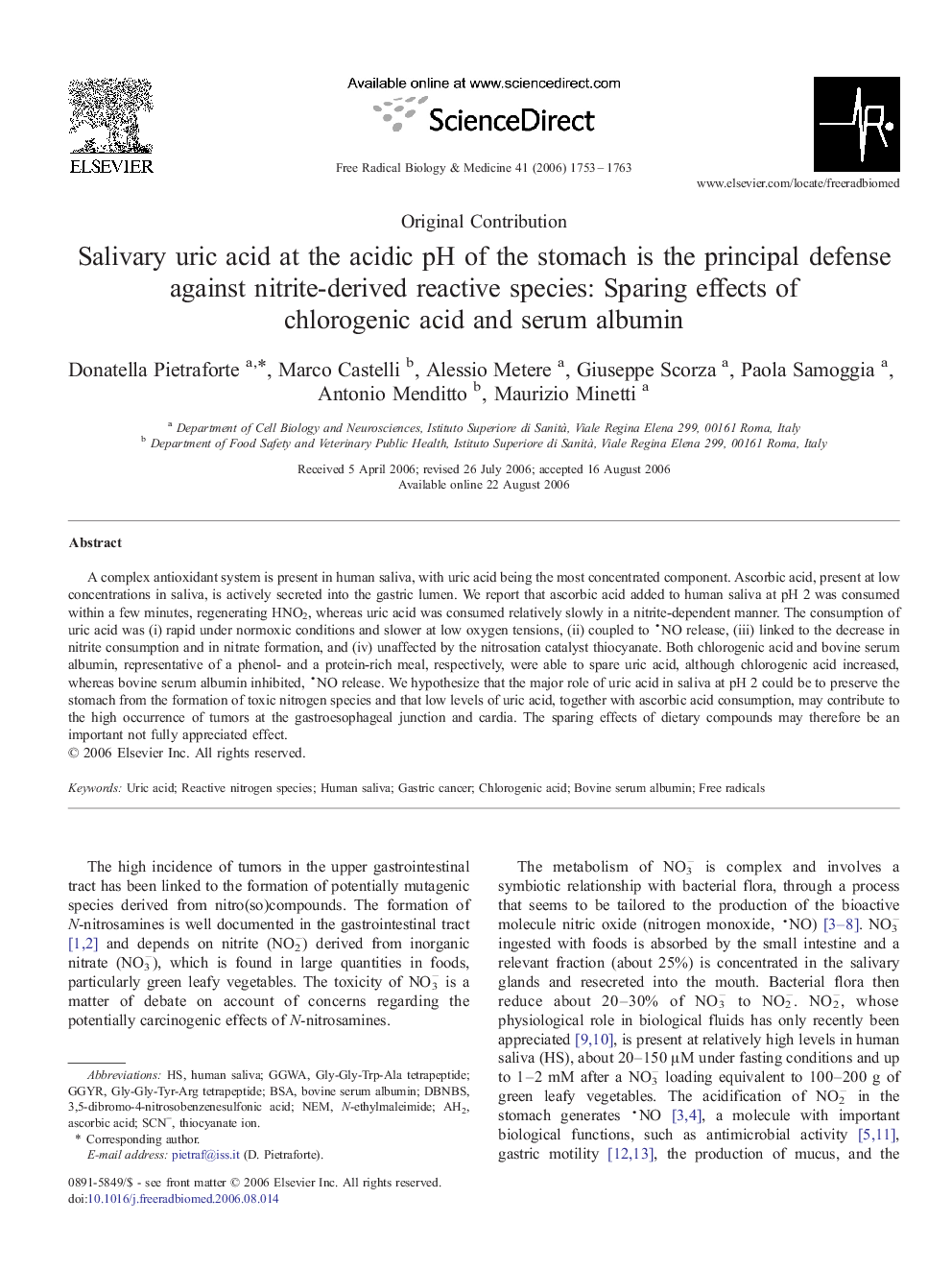| Article ID | Journal | Published Year | Pages | File Type |
|---|---|---|---|---|
| 1911941 | Free Radical Biology and Medicine | 2006 | 11 Pages |
A complex antioxidant system is present in human saliva, with uric acid being the most concentrated component. Ascorbic acid, present at low concentrations in saliva, is actively secreted into the gastric lumen. We report that ascorbic acid added to human saliva at pH 2 was consumed within a few minutes, regenerating HNO2, whereas uric acid was consumed relatively slowly in a nitrite-dependent manner. The consumption of uric acid was (i) rapid under normoxic conditions and slower at low oxygen tensions, (ii) coupled to NO release, (iii) linked to the decrease in nitrite consumption and in nitrate formation, and (iv) unaffected by the nitrosation catalyst thiocyanate. Both chlorogenic acid and bovine serum albumin, representative of a phenol- and a protein-rich meal, respectively, were able to spare uric acid, although chlorogenic acid increased, whereas bovine serum albumin inhibited, NO release. We hypothesize that the major role of uric acid in saliva at pH 2 could be to preserve the stomach from the formation of toxic nitrogen species and that low levels of uric acid, together with ascorbic acid consumption, may contribute to the high occurrence of tumors at the gastroesophageal junction and cardia. The sparing effects of dietary compounds may therefore be an important not fully appreciated effect.
